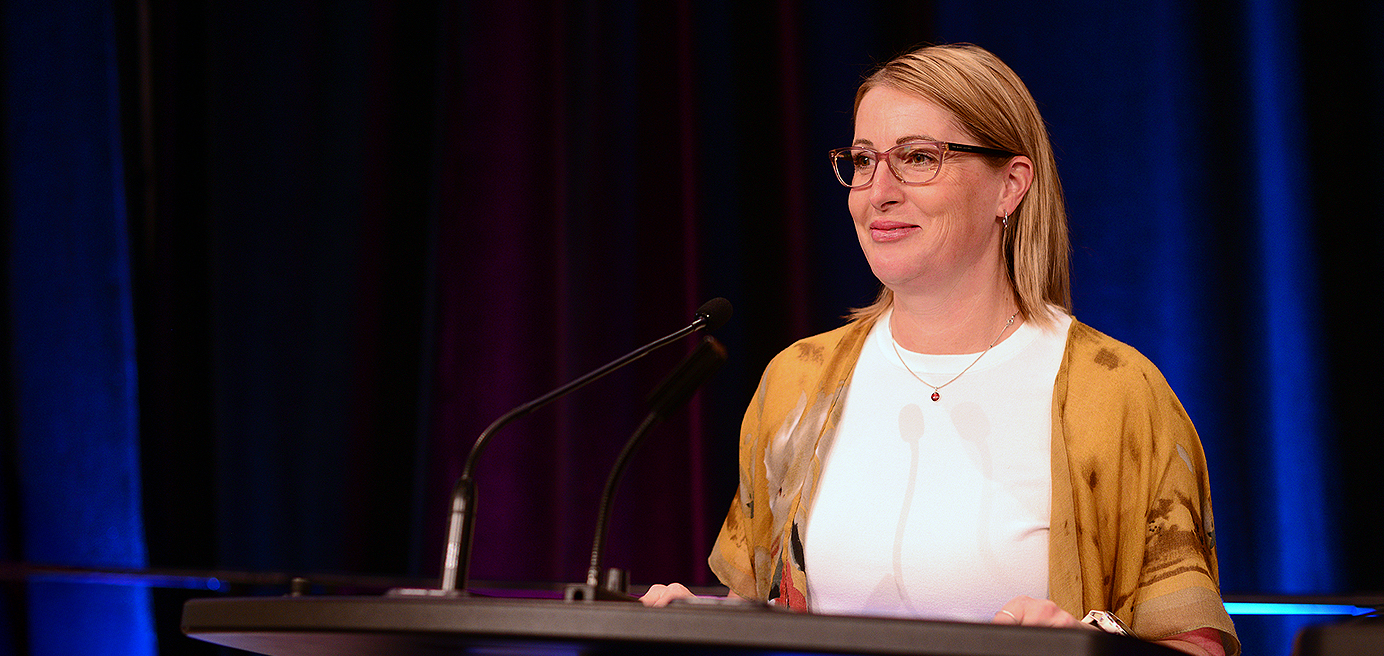 Executive Councillor for Occupational Health and Safety: “Violence is Not Part of Your Job”
Executive Councillor for Occupational Health and Safety: “Violence is Not Part of Your Job”

BCNU’s former Interim Executive Councillor for Occupational Health and Safety and Mental Health Denise Waurynchuk began her convention presentation by welcoming returning Executive Councillor for Occupational Health and Safety and Mental Health Aida Herrera back to the role.
Waurynchuck then reflected on the work she has undertaken in her portfolio over the past year, starting on a sombre note.
“We often have no idea what our co-workers are carrying behind their smiles and their uniforms. The truth is, some are quietly enduring more than we can imagine.”
However, she reminded delegates that the Nurses’ Bargaining Association (NBA) Hardship Assistance and Supplemental Mental Health Benefit (SMHB) are both available to offer support. Waurynchuk reported that since February 2024, 1,579 NBA members accessed Hardship Assistance, and pointed to the impact it and the SMHB can have on the members who need them.
“Some members are on the brink of eviction, choosing between paying bills and buying groceries or starting over after leaving unsafe homes,” she said. “Others are facing serious illnesses, are unable to work, and are barely staying afloat.”
Waurynchuk highlighted BCNU’s actions over the past year to build safer and healthier workplaces and better support members who may be struggling. She pointed to the hard work of enhanced disability management program (EDMP) representatives, joint occupational health and safety committee (JOHS) representatives and regional OHS and mental health advocates to help support nurses’ mental health and well-being across the province.
Waurynchyk called attention to the impact of the union’s Violence: Not Part of the Job; Break Down the Barriers and Stand up, Speak out campaigns that have shone a light on the realities of violence in health care, helping to destigmatize psychological injury and demand lasting solutions to BC’s critical nurse shortage. She acknowledged that violence in the workplace is still a major concern. “Let’s be absolutely clear: Violence is not okay. Violence is not part of your job,” she emphasized, adding that when workers act collectively, they protect themselves and other workers. “We remind the employer: safety is their job, and we’re watching.”
Waurynchuk ended by reminding members to keep reporting health and safety issues and advocating for safer workplaces by calling the Provincial Workplace Health Contact Centre, filing WorkSafeBC reports, and speaking out to support one another.

